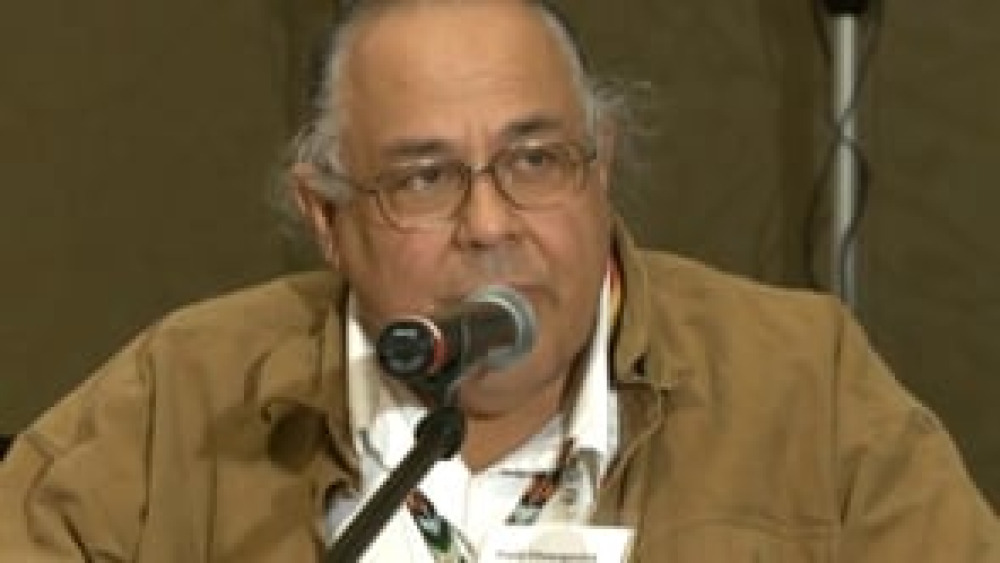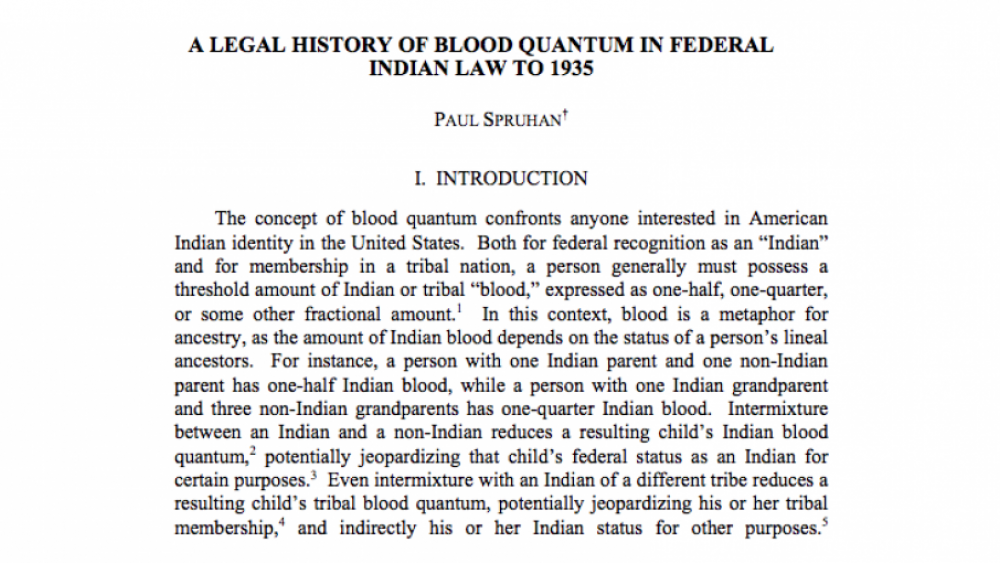In this short excerpt from his 2009 interview with NNI, Citizen Potawatomi Nation Chairman John "Rocky" Barrett discusses the devastating impacts that blood quantum exacted on the Citizen Potawatomi people before the nation did away with blood quantum as its main criteria for citizenship through constitutional amendments in the mid-1980s.
Additional Information
John "Rocky" Barrett, Chairman, Citizen Potawatomi Nation, "Constitutional Reform and the Citizen Potawatomi Nation's Path to Self-Determination," Interview, "Leading Native Nations" interview series, Native Nations Institute for Leadership, Management, and Policy, The University of Arizona, Tucson, Arizona, March 28, 2009.
Transcript
"It was a period of time where the...my realization that there was...the Bureau [of Indian Affairs] was asking us to give them advice on the agency budget. And then when we would, they would ignore us as far as the advice. And there were...almost at every stop there was some deliberate statement of policy that the United States government and the Bureau of Indian Affairs' job was to represent the interests of individual Indians, and not tribes or tribal governments. And that had certainly been manifested almost entirely in the 1948 Indian Claims Commission settlements. And it had forced us into a situation of closing our rolls in 1962 except for some arbitrary blood-degree cutoff. The concept of blood degree was foreign to our culture, and we did away with blood-degree determinations in constitutional amendments in the mid-1980s. But that period of time between '62 and '80 disenfranchised an awful lot of people and led to a -- on the whole -- a great deal of the separation that the people felt from the tribe and its culture. It became all about splitting up this poof money that was coming from the government, these little payments, and less about the fact that here we are, a people with its own language and art and history and culture and territory and government that had been there for thousands of years, and suddenly we placed these arbitrary stops in our system over a $450 check. In retrospect, it seems insane, and it was. Truthfully, it was."



